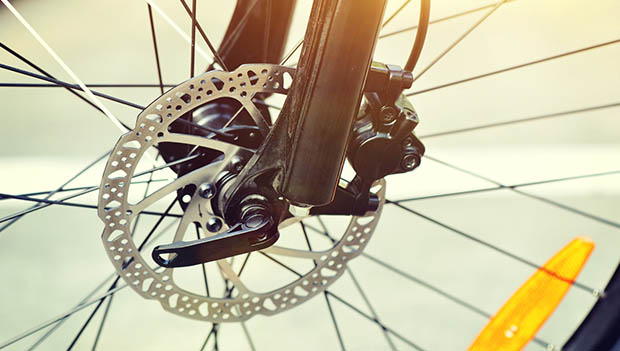
Commonplace in the mountain biking and cyclocross scene, disc brakes have permeated the road cycling market in a major way. Almost all of the large bike brands offer their flagship models with both rim and disc brake options, and manufacturers have dumped large amounts of time and resources to making disc brakes competitive.
But should you commit to buying a road bike with disc brakes?
What Are Disc Brakes?
For starters, there are two main differences between rim and disc brakes. Rim brakes have calipers that pinch the sides of the rim to create stopping friction. Disc brakes have a rotor mounted directly to the hub, similar to a car or motorcycle. Rim brakes use a classic cable-based system, whereas disc brakes use brake lines and a fluid system to apply pressure.
Advantages of Disc Brakes
- More stopping power: This means you don't have to squeeze the lever as hard to slow down, which is especially beneficial on long, technical descents.
- Better in the rain: Stopping in the rain isn't an issue. Compared to rim brakes (and rim brakes on carbon wheels), you'll notice much more control and stopping power once the weather turns nasty.
- Easier to prevent wheel lock up: It's easy with both rim and disc brakes to squeeze the lever and cause your wheel to lock up—that's a recipe for disaster. Disc brakes, however, have increased modulation (more finesse and feel), which allows the rider to apply or relieve pressure, depending on their situation, to keep from losing traction.
- Improved bike handling and lateral stiffness: Most disc-equipped rims can support a large tire profile and include thru axles.


